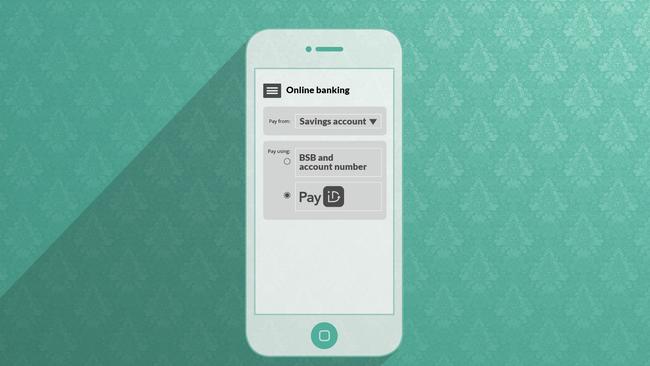New Payment Platform could herald massive changes in banking
The new payment system will be of greater consequence for competition and efficiency than any reports and inquiries.

Australia’s shiny new payment system, the New Payments Platform, foreshadows massive changes in banking and how we pay for goods and services, and each other.Launched by the Reserve Bank this week, it will be of greater consequence for competition and efficiency than any number of reports and inquiries.
Do you ever think about changing bank accounts? Perhaps you’ve been whacked with a $35 penalty charge when you accidentally overdrew your account (having never been asked whether you wanted such a “facility” in the first place).
Until now, it’s been difficult to change banks for a higher interest rate, because unpicking all your recurrent direct debits and credits, not to mention telling all your friends to update your BSB and account number with their own banks, is hugely time-consuming.
The arrival of the NPP — which will publicly be known as “Osko” for the time being — puts de facto bank account portability on the horizon, and a lot more.
The NPP will furnish Australia with perhaps the most advanced national, digital payment system in the world, far better than anything in the US and Britain.
From this week, assuming your bank is one of the 60 financial institutions connected and has bothered to provide the service (HSBC and AMP, for instance, haven’t), you’ll be able to send payments in real time. That means the recipient must wait only seconds before the money arrives, rather than multiple business days as is the case now (if you send on Saturday before a public holiday).
Further, the technology permits 280-character messages, including emojis, to attach to payments, rather than the 18 character maximum now. Best of all, pesky BSB and account numbers will be relegated to the payments plumbing where they belong: payers and payees will be identified by their mobile phone number or email address.
The NPP is a piece of infrastructure more important than any new highway or train line. Making the payment system more nimble and efficient matters. In 2013 the total cost of paying for things, shared across consumers, banks, and merchants, was $11 billion, or 0.71 per cent of economic output, according to the Reserve Bank.
The bulk of those costs related to cash and credit cards, easily the two most expensive ways to pay.
The NPP should reduce these costs considerably by sapping demand for cash and ultimately even credit cards, which only seem cheap to users because the seller gets whacked with a merchant service fee of around 0.75 per cent (and much more with Amex and Diners Club cards). That’s who funds your “rewards points”.
Banks dragged the chain building the NPP — the Reserve Bank had to threaten to build it without them. It’s been in the works for six years and few people know about it, even after it’s up and running. The NPP could have been a sorely needed bit of good news for the banks.
The NPP represents a threat to some juicy, easy revenue streams, especially in combination with the government’s “open banking” reforms, which will require banks to divulge your account and transaction details to third parties, if you allow it.
All manner of inventive, deposit-hoovering apps could emerge to help consumers save, invest, and budget in ways that cut banks’ income. For a start, transferring money to a friend on Saturday will no longer provide a two-day interest windfall for your bank (because banks then enjoy the interest on Saturday or Sunday, and the recipient won’t get it until Monday). Payment apps will emerge that warn you before you’re gouged $35 for overdrawing your account by a few cents.
But that’s small beer in the long run. Imagine if an NPP “overlay”, as they’re known, came along that gave customers a discount over the rack price if they paid directly to a seller’s PayID, rather than using a Visa or Mastercard. Many consumers only use credit cards to avoid carrying cash and for the convenience of “tap and go”. They don’t actually need the credit facility.
The Reserve Bank, which houses the Fast Settlement Service that underpins the NPP, will charge just 1c to process every NPP transaction — that’s a lot cheaper than a 0.75 per cent merchant service fee that comes to about 3c for a cup of coffee, let alone a fridge.
The Productivity Commission, in its draft report on competition in the financial system released last week, feared the NPP wouldn’t live up to its potential without a few more tweaks. As constituted, the NPP is owned by the Reserve Bank, the big four, and other smaller lenders. They might charge third parties excessive fees to curb competition or make the access criteria too onerous, it said.
It also questioned why the initial NPP set-up “does little to relieve the burden of switching bank accounts”.
Indeed, the NPP won’t initially make switching bank accounts much easier because the system isn’t yet able to sustain recurrent credit and debits, such as bill payments. But within a few years that should change.
In that case, all deposit holders’ payment instructions would be linked not to a BSB and account number, but to their email or mobile number. That could be very disruptive for banks. Imagine if extra competition for deposits increased the average interest rate banks paid on the $1.4 trillion of on-call deposits by just 0.1 percentage points — that’s $1.4bn a year in consumers’ rather than banks’ pockets.




To join the conversation, please log in. Don't have an account? Register
Join the conversation, you are commenting as Logout